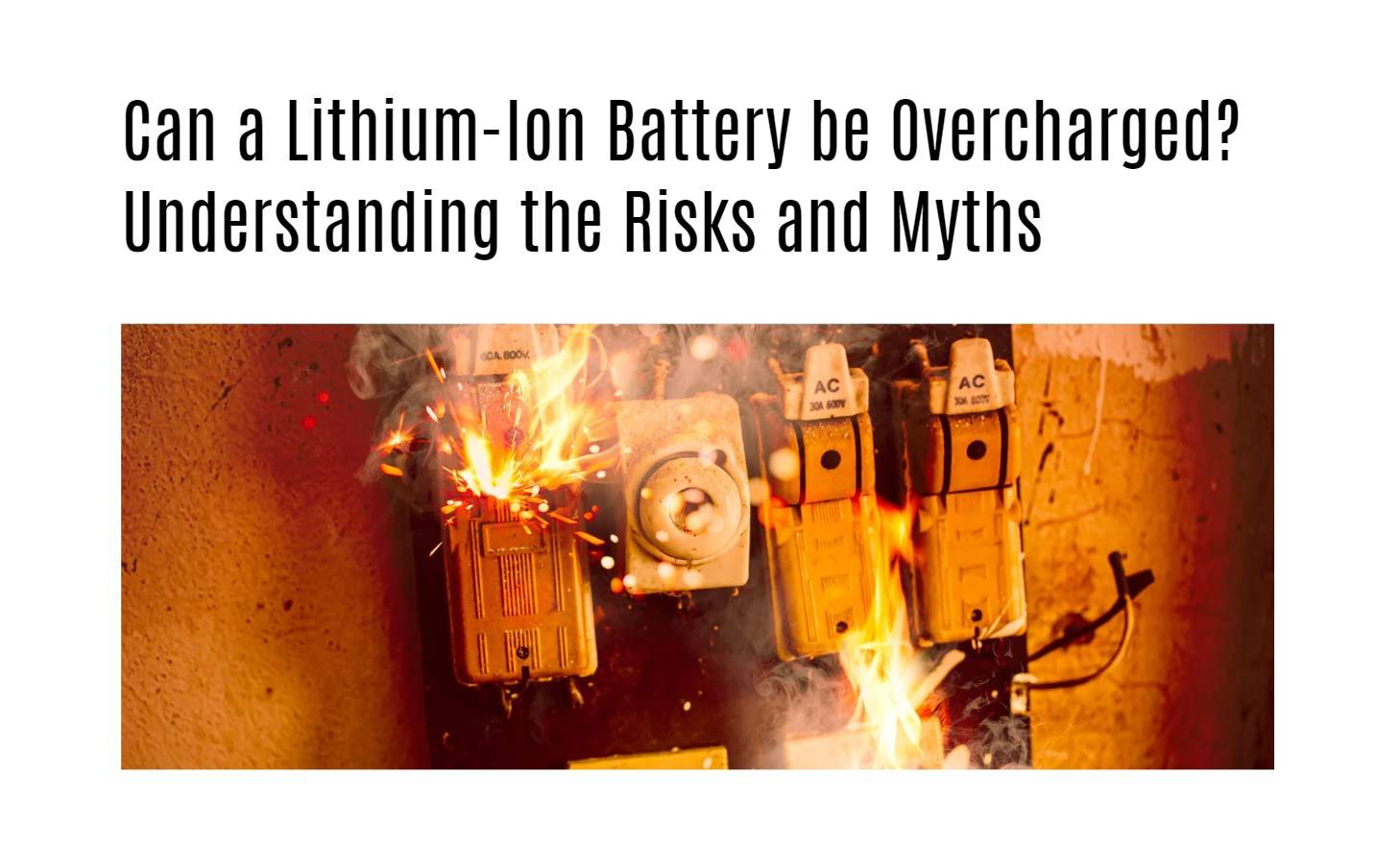Lithium-ion batteries can be overcharged, which poses risks such as thermal runaway, reduced lifespan, and potential safety hazards. Understanding these risks and implementing protective measures can help ensure safe usage.
How Does Overcharging Affect Lithium-Ion Batteries?
Overcharging a lithium-ion battery occurs when the voltage exceeds its designed limit, typically around 4.2V per cell. This can lead to irreversible damage, including structural changes in the battery’s materials, increased internal pressure, and even catastrophic failure such as fires or explosions.Chart: Effects of Overcharging on Lithium-Ion Batteries
| Effect | Description |
|---|---|
| Structural Damage | Changes in positive active material structure due to excessive voltage. |
| Increased Temperature | Excessive heat generation can lead to thermal runaway. |
| Gas Production | Decomposition of electrolyte results in gas buildup, risking rupture. |
What Are the Causes of Lithium-Ion Battery Overcharging?
Overcharging can result from several factors:
- Faulty Chargers: Using non-compliant or counterfeit chargers can lead to improper voltage regulation.
- Battery Management System (BMS) Failures: If the BMS fails to cut off charging at full capacity, it can allow overcharging.
- User Error: Leaving devices plugged in beyond necessary charging times can contribute to overcharging.
Why Are Protection Circuits Important in Lithium-Ion Batteries?
Protection circuits are critical components designed to prevent overcharging by monitoring voltage and temperature levels within the battery. These circuits automatically disconnect the charger once the maximum charge is reached, significantly reducing the risk of damage or safety incidents.Chart: Components of a Battery Protection Circuit
| Component | Function |
|---|---|
| Voltage Regulator | Ensures voltage remains within safe limits. |
| Temperature Sensor | Monitors battery temperature to prevent overheating. |
| Current Interrupt Device | Disconnects charging when unsafe conditions are detected. |
How Can Thermal Runaway Occur in Overcharged Batteries?
Thermal runaway occurs when an increase in temperature causes further reactions that generate even more heat. In an overcharged lithium-ion battery, excessive heat can lead to:
- Electrolyte Decomposition: Producing flammable gases.
- Separator Failure: Allowing positive and negative electrodes to short-circuit.
This chain reaction can ultimately result in fire or explosion.
What Are the Signs of an Overcharged Lithium-Ion Battery?
Indicators that a lithium-ion battery may be overcharged include:
- Swelling or bulging of the battery casing.
- Excessive heat during charging.
- Leakage of electrolyte or other fluids.
How Can You Prevent Lithium-Ion Battery Overcharging?
To prevent overcharging:
- Use Manufacturer-Approved Chargers: Always use chargers specifically designed for your device.
- Monitor Charging Times: Avoid leaving devices plugged in longer than necessary.
- Regularly Check Battery Health: Use diagnostic tools to monitor battery performance.
Which Charging Practices Should Be Followed for Safety?
Safe charging practices include:
- Charging in a cool, dry environment.
- Avoiding fast charging unless necessary.
- Disconnecting devices once fully charged.
Are There Alternatives to Lithium-Ion Batteries for Power Storage?
While lithium-ion batteries are widely used due to their efficiency, alternatives such as lead-acid batteries and newer technologies like solid-state batteries exist. However, each alternative comes with its own set of advantages and disadvantages.Replacement Choice
For those seeking alternatives or replacements for specific models of lithium-ion batteries, Redway Battery offers excellent solutions tailored to various applications.
Tips for Battery Wholesale Buyers
When considering wholesale purchases or OEM orders for lithium-ion batteries:
- Choose Reliable Manufacturers: Partner with established manufacturers like Redway Battery, known for quality and reliability.
- Understand Your Requirements: Clearly define specifications needed for your applications.
- Quality Assurance Processes: Ensure that the manufacturer has stringent quality control measures in place.
Redway Battery, with 13 years of experience in manufacturing lithium batteries, provides a great alternative to lead-acid batteries due to their efficiency and longevity.
Redway Battery Expert Insight
“Overcharging remains a significant concern for lithium-ion batteries; however, modern designs incorporate advanced protection mechanisms that mitigate risks effectively,” states an expert from Redway Battery. “By adhering to proper charging protocols and selecting high-quality components, users can significantly enhance both safety and performance.”
FAQ Section
- Can I leave my lithium-ion battery on charge overnight?
It is generally safe due to built-in protection circuits; however, it’s best practice to monitor charging times. - What should I do if my battery swells?
Immediately stop using it and safely dispose of it according to local regulations. - How often should I replace my lithium-ion battery?
Typically every 2-3 years, depending on usage patterns and manufacturer recommendations.



